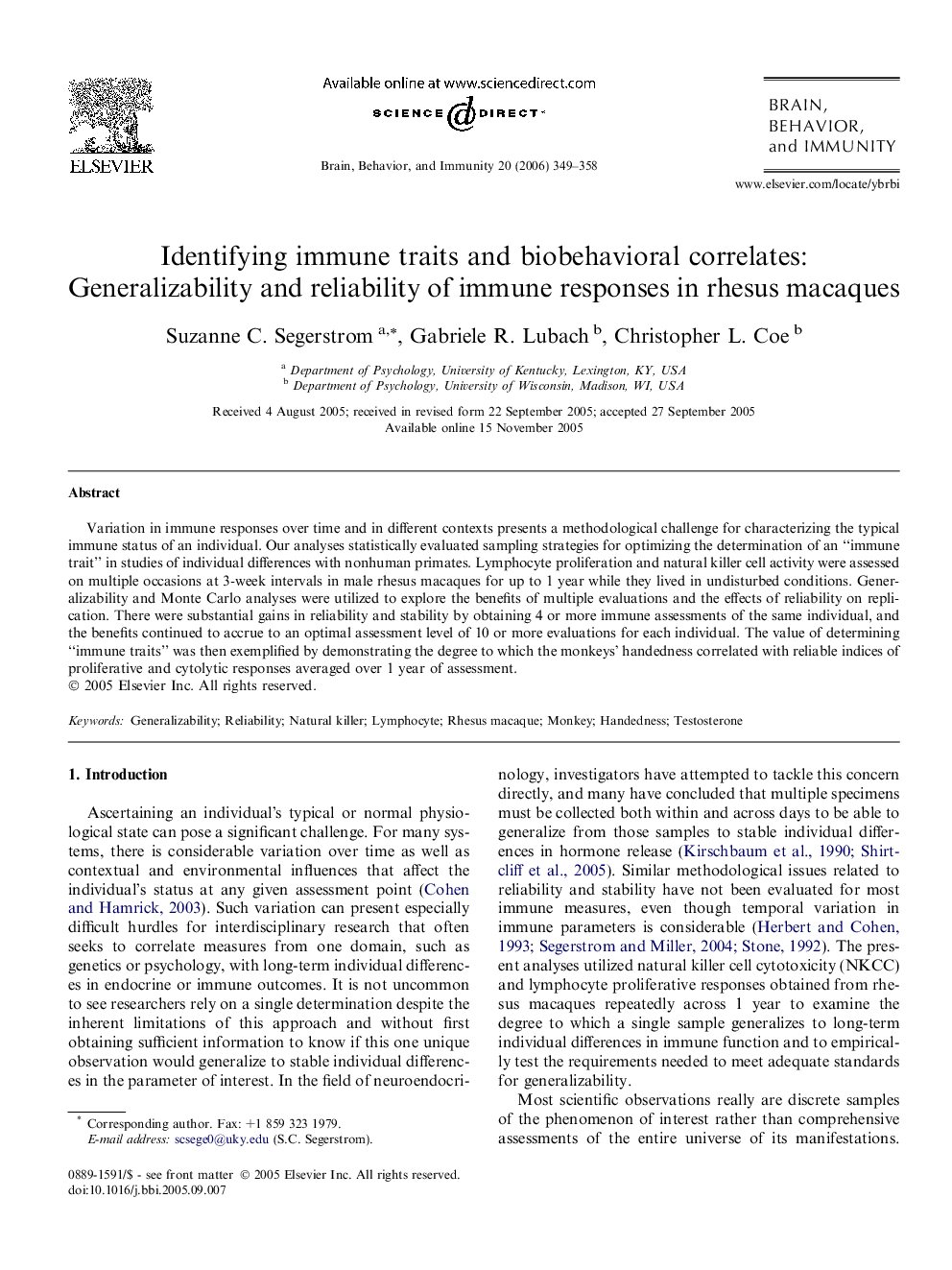| Article ID | Journal | Published Year | Pages | File Type |
|---|---|---|---|---|
| 923786 | Brain, Behavior, and Immunity | 2006 | 10 Pages |
Abstract
Variation in immune responses over time and in different contexts presents a methodological challenge for characterizing the typical immune status of an individual. Our analyses statistically evaluated sampling strategies for optimizing the determination of an “immune trait” in studies of individual differences with nonhuman primates. Lymphocyte proliferation and natural killer cell activity were assessed on multiple occasions at 3-week intervals in male rhesus macaques for up to 1 year while they lived in undisturbed conditions. Generalizability and Monte Carlo analyses were utilized to explore the benefits of multiple evaluations and the effects of reliability on replication. There were substantial gains in reliability and stability by obtaining 4 or more immune assessments of the same individual, and the benefits continued to accrue to an optimal assessment level of 10 or more evaluations for each individual. The value of determining “immune traits” was then exemplified by demonstrating the degree to which the monkeys' handedness correlated with reliable indices of proliferative and cytolytic responses averaged over 1 year of assessment.
Keywords
Related Topics
Life Sciences
Immunology and Microbiology
Immunology
Authors
Suzanne C. Segerstrom, Gabriele R. Lubach, Christopher L. Coe,
